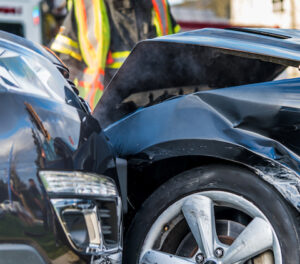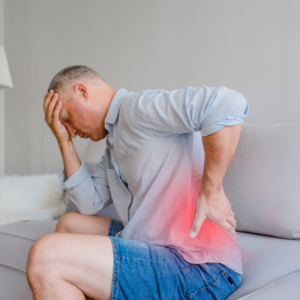 Lower body injuries account for about one-third of crash injuries. Hip pain after a car accident can range from a dull ache to intense joint pain, and may not be immediately apparent. People often dismiss discomfort as expected soreness, only to feel worse later. If you’re experiencing hip pain after an accident, consult an injury attorney to discuss your options.
Lower body injuries account for about one-third of crash injuries. Hip pain after a car accident can range from a dull ache to intense joint pain, and may not be immediately apparent. People often dismiss discomfort as expected soreness, only to feel worse later. If you’re experiencing hip pain after an accident, consult an injury attorney to discuss your options.
Even if you feel fine initially, delayed injuries can appear hours or days later. Hip injuries can significantly impact daily activities, causing altered movement patterns and leading to further complications. Seeking medical attention promptly is crucial for your health and potential legal case.
Don’t wait for symptoms to worsen. Acting quickly can benefit your health, personal injury claim, and legal outcome. Contact the experienced car accident injury attorneys at Regan Zambri Long, PLLC for a free case evaluation to understand your rights and potential compensation.
When you’re in a car crash, your hip can get injured in a variety of different ways. For instance, one of the most common injuries is hip dislocation because of the impact of the car accident victim’s knee hitting the dashboard (National Institutes of Health (NIH), 2021). Your hip has many different parts that work together to help you to move smoothly. These injuries can make it hard to walk or move normally. It’s essential to get checked out by a doctor.
The hip socket or other parts of the hip bone can break. Blunt force trauma in a motor vehicle collision can cause stress fractures, severe hip fractures, and a broken hip. Sometimes, bones around the hip bone can break and push into it, causing limited mobility. These types of hip injuries usually require surgeries to fix these breaks, and healing can take a long time. In some instances, you might even need hip replacement surgery.
Injuries from auto accidents can cause your hip to come out of place, forcing the ball-shaped top of your thigh bone to pop out of the hip socket. This ball-and-socket joint dislocation typically causes excruciating pain in the hip joint and makes normal leg movement difficult:
Hip dislocations are severe and demand immediate medical attention. Doctors must put the hip back in place. Complicated dislocations may require surgical intervention. You’ll need time to heal after the hip is back in place. Aftercare may include crutches, physical therapy, and a comprehensive treatment plan. Future problems that can arise include the management of arthritis and chronic pain.
The hip joint has a ring of cartilage called the labrum, which acts like a rubber seal to hold the top of your thigh bone in place within the hip socket. In a car crash, the forceful impact can tear this labrum or even tear it away from the edge of your hip socket. Sometimes, the pain starts immediately, but symptoms may be delayed in other instances. If you have a labral tear, you might feel:
Special scans, like MRIs, can detect these types of injuries. Label tear treatment depends on the severity of the tear. For small tears, rest and physical therapy might be enough; more extensive tears might require surgery to fix or remove the torn area. Healing might require special exercises or medical devices to assist weight-bearing movements while recovering.
Your hip has little fluid-filled sacs (called bursae) that cushion the bones, tendons and muscles near your joints. When you’re in an accident, the impact of the crash can put too much stress on your hip and irritate these cushions, causing painful inflammation of the bursae or bursitis. Signs of bursitis include:
Resting and putting ice on the tender area usually helps. If the bursitis causes severe pain, you might need specific treatment options, which may include exercise, steroid injections, or even surgery. Keep in mind that there may be a delay in the onset of the pain and trauma that triggers inflammation and bursitis.
Chronic pain: You might feel hip pain for an extended period, even after the injury heals. Everyday activities may become increasingly difficult.

Limited movement and range of motion: Your hip might not move as quickly as it usually does, making bending, climbing stairs, or playing sports and activities can become more challenging.
Weakness: If you don’t use the muscles around your hip because of pain, they could weaken. Simple tasks like walking or standing may become more complex. Proper evaluation and medical care are critical; adequate diagnosis can lead to appropriate exercises and care.
Changes in how you walk: You might start walking differently to avoid hip pain. Over time, this gait change can lead to problems and imbalances in other areas, like your back or knees.
Ongoing medical care: You may need to see doctors or physical therapists for an extended period. Sometimes, people need multiple surgeries over time to fix ongoing issues.
Mental health issues: Dealing with constant pain and not being able to move freely can be stressful and frustrating. Feelings of depression or anxiety over time can develop.
Sleep problems: Hip pain might make it challenging to find a comfortable sleeping position, leading to poor sleep, insomnia, or restlessness.
Difficulty with work: Depending on your job, hip problems could make it harder to do your tasks. You might even have to change careers if the physical demands are too great.
Increased fall risk: If your hip isn’t working correctly, you could lose your balance more efficiently, increasing your risk of falls and injuries. Exercises are essential to practice and be proactive about rehabbing your hip.
Corrective exercise and physical therapy can be highly beneficial. A physical therapist can teach you particular exercises to strengthen your hip, more resilient, and move better. Practitioners may also manually massage and stretch the sore areas, which can help you feel less pain and fluid movement. By doing physical therapy, you can heal faster and lower the chances of having future chronic hip problems (National Highway Traffic and Safety Administration (NHTSA), 2024).
When your hip hurts after a car crash, resolution, treatment, and healing can take a while. These types of injuries also sometimes require long-term pain management plans. A hip fracture can minimize accident victims’ independence. If left untreated, hip injuries can create ongoing chronic conditions, including tendinitis, bursitis, and arthritis. Your walking gait can be compromised, too, causing muscle imbalances and weaknesses.
If the crash wasn’t your fault, you can file a personal injury claim to help compensate you for your medical bills and pain and suffering. When someone else is at fault for the accident, they might have to pay for your doctor bills, missed work, and pain. Even if your injury seems small, it can still interfere with your life and work.
Getting a police report and immediate medical attention after a vehicle collision is critical. Firstly, medical care will ensure you are safe and stable and get a thorough physical examination and medical treatment. Secondly, these processes establish a paper trail and proof to supply to insurance companies and in court if your personal injury case goes to trial.
In addition to hip injuries, car accidents can cause various leg injuries, including fractures, soft tissue damage, and knee trauma, which can significantly impact mobility and quality of life.
Our experienced Regan Zambri Long car accident attorney in Virginia, Washington, and Maryland can help you determine what to do next. You are entitled to compensation for your pain and suffering. Medical expenses and extended care can be costly, and recovery can be mentally and emotionally exhausting.
Call Regan Zambri Long for legal advice today. Let us help steer your physical, mental, and financial recovery support with our expert legal counsel in a free consultation.